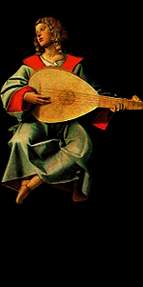 |
 |
 |
 |
 |
|
| Review |  |
|
The role of the Arabic, lute-like, stringed instrument, the oud, has been revolutionalized through the playing of Anouar Brahem. While used in the past to accompany vocalists, the oud is used by Brahem as an imaginative solo instrument. In 1988, Tunisian newspaper, "Tunis-Hebdo", wrote, "If we had to elect the musician of the 80s, we would have, without the least hesitation, chosen Anouar Brahem". The British daily newspaper, "The Guardian", that Brahem was "at the forefront of jazz because he is far beyond it".
Encouraged by his music-loving father, Brahem began studying the oud, at the age of ten, when he enrolled at the National Conservatory of Music. For nearly a decade, he studied with influential oud player Ali Sitri. By the age of fifteen, he was playing well enough to perform regularly with local orchestras. Although he initially focused on Arabic music, Brahem increasingly incorporated elements of jazz. This was enhanced during the six years that he spent in Paris (1981 -- 1987), performing at festivals and collaborating with choreographer Maurice Bejart on a production, "A Return To Carthage" that received the prestigous "National Award Of Excellence In Music".
Returning to Tunis in 1987, Brahem performed at the Carthage Festival in the multi-artist production, "Ligua 85". Shortly afterwards, Braham agreed to become director of the Ensemble Musical De In Ville De Tunis. During the two years that he oversaw the ensemble, Brahem divided the group into smaller of various sizes. Among the productions that he directed were "Leilatou Tayu" and "El Hizam El Dhahbi".
In 1990, Brahem resigned to focus on his own career. After touring in the United States and Canada, he met and was signed by Manfred Eicher, producer and founder of German record label, ECM. His debut album, "Barzakh", released in 1991, was recorded with Turkish musicians, Bechir Selmi and Lassad Hosni. In a review of the album, German music magazine, "Stereo", wrote, "(Brahem) is an exceptional musician and improviser". Brahem's second album, "Conte De L'incroyable Amour", released in 1992, was recorded with clarinet player Barbaros Erkose. In 1994, Brahem recorded "Madar", with Norwegian saxophonist Jan Garbarek and Pakistani tabla player Shaukat Hussain. Brahem's fourth album, "Khomas", released in 1995, featured improvised interpretations of his compositions for Tunisian film and theater productions and was recorded with accordion player Richard Galliano and violinist Bechir Selmi. With his fifth effort, "Thimar", released in 1998, Brahem collaborated with soprano saxophone and bass clarinet player Jon Surman and double bass player Dave Holland.
Brahem has composed numerous pieces for such films and musical theater productions as "Sabots En Or", "Bezness", "Halfaouine", "Les Silences Du Palais", "Lachou Shakespeare", "Wannas El Kloub", El Amel", "Borj El Hammam" and "Bosten Jamalek". He collaborated with Maurice Bejart on the ballet, "Thalassa Mare Nostrum" and with Gabriel Yared on the Costa Gravas film, "Hanna K".
|
|
|
|

